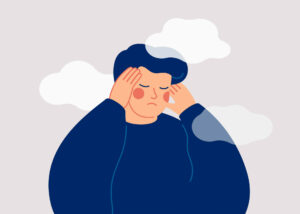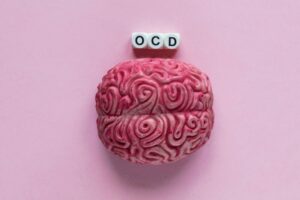Do you obsess over your sexual orientation? Are you constantly worrying that you might be gay, even though you’re not sure? If so, you might have a sexual orientation or SO OCD. This is a type of OCD where people become obsessed with their perceived sexual orientation. Fortunately, there are treatments available that can help! In this blog post, we will discuss the different SO OCD treatments. And how they can help you overcome your fears and obsessions!
Contents
What Is SO OCD?
 SO OCD is an acronym for sexual orientation OCD. It is a form of obsessive-compulsive disorder (OCD) that involves intrusive, unwanted thoughts, images, and impulses related to a person’s sexual orientation. People with SO OCD experience significant distress. Because they fear that their true sexual orientation is different from the one they currently identify with. Or feel most comfortable with.
SO OCD is an acronym for sexual orientation OCD. It is a form of obsessive-compulsive disorder (OCD) that involves intrusive, unwanted thoughts, images, and impulses related to a person’s sexual orientation. People with SO OCD experience significant distress. Because they fear that their true sexual orientation is different from the one they currently identify with. Or feel most comfortable with.
This anxiety can lead to compulsions such as checking one’s behavior or thoughts, seeking reassurance from others, and excessive rumination. People with SO OCD may also experience intrusive images of sexual acts that they find distressing or repulsive.
This can lead to avoidance behaviors, such as avoiding certain people or places that trigger these unwanted thoughts and feelings. SO OCD is a debilitating condition for many people who experience it. It can have a negative impact on quality of life, relationships, and social functioning.
Fortunately, there are treatments available for SO OCD. Just be sure to consult with a mental health professional for an accurate diagnosis and treatment plan. With the right treatments, people with SO OCD can often find relief from their symptoms and lead fulfilling lives.
What Are Some SO OCD Treatments?
In some cases, people may need (Sexual Orientation) SO OCD treatments in order to overcome their obsessions and compulsions. Here are some of the most common types of treatment for SO OCD:
Cognitive Behavioral Therapy (CBT)
CBT is a type of psychotherapy that focuses on helping people identify and manage unhealthy thought patterns and behaviors. In the context of SO OCD, CBT has been shown to help people better cope with their obsessions and compulsions. For example, it may help someone learn to challenge their irrational beliefs about sexual orientation and reduce their anxiety.
Exposure and Response Prevention (ERP)
ERP is a form of CBT that focuses on gradually exposing people to the thoughts, images, or situations that trigger their obsessions and then encouraging them to practice resisting compulsive behaviors. This type of therapy can be especially useful for people with SO OCD, as it can help them better manage their fear of sexual orientation and stop avoiding activities related to it.
Medication
In some cases, medication may also be used for SO OCD treatment. Commonly prescribed medications include selective serotonin reuptake inhibitors (SSRIs) and tricyclic antidepressants (TCAs). These medications can help reduce anxiety and obsessions, allowing people to better focus on their therapy.
Coaching
Working with a coach or therapist who specializes in SO OCD can also be beneficial. A coach or therapist can provide support and guidance. While helping individuals develop strategies to manage their obsessions and compulsions. For example, a coach can develop an action plan to help someone manage their fear of sexual orientation or set goals for how quickly they can reduce compulsive behaviors.
Relaxation Techniques
There are also relaxation techniques that can help people manage the symptoms of SO OCD. For example, deep breathing exercises, progressive muscle relaxation, and mindfulness practices can all be useful in reducing stress and calming an anxious mind. These techniques are often used in conjunction with other forms of therapy, such as CBT or ERP.
Support Groups
Support groups can also be beneficial for people with SO OCD. These groups provide a safe and supportive environment where individuals can talk to others who understand their struggles and share their experiences. This can help reduce feelings of isolation and give insight into how others cope with their obsessions and compulsions.
Lifestyle Changes
In some cases, making lifestyle changes can also be helpful for managing SO OCD. Eating a healthy diet, getting plenty of sleep, exercising regularly, and using relaxation techniques can all help to reduce stress and anxiety levels. Additionally, practicing self-care activities such as journaling or engaging in hobbies can be beneficial for people with SO OCD.
Overall, there are a variety of SO OCD treatment options available. It is important to find the best approach that works for you. Getting the right support and guidance can help make managing SO OCD easier. It is important to remember that everyone’s experience with SO OCD is unique, and it may take time to find the right combination of treatments that work for you.
Is SO OCD Curable?
 The short answer is yes: SO OCD can be treated and managed with a combination of medication, therapy, lifestyle changes, and support from family and friends. The recovery may take time, but it is possible.
The short answer is yes: SO OCD can be treated and managed with a combination of medication, therapy, lifestyle changes, and support from family and friends. The recovery may take time, but it is possible.
There are various studies over the years that suggest that a combination of medication and Cognitive Behavioral Therapy (CBT) is the most effective treatment for people with SO OCD. Medication can help reduce the severity of symptoms. While CBT helps individuals to modify their thoughts and behavior associated with the disorder.
SO OCD treatment is often personalized to the individual and can include a combination of treatment options. It is important to understand that recovery may not be immediate and could take months or even years of dedication.
However, in some cases, a complete cure is not possible. But the symptoms can be effectively managed when the person follows a treatment plan and gets regular support from family and friends.
The best way to start treating SO OCD is by consulting a mental health professional. A mental health professional can help diagnose the condition. And create an individualized treatment plan that is tailored to the needs of the person.
Is SO OCD And HOCD The Same?
Well, many people may find it confusing to understand the difference between SO OCD and HOCD. In essence, sexual orientation OCD (SO OCD) is an anxiety disorder that causes someone to have irrational fears or doubts about their own sexual orientation. HOCD, on the other hand, stands for Homosexuality Obsessive Compulsive Disorder and is a type of OCD that involves obsessions with homosexual thoughts or images.
The main difference between the two is that SO OCD refers to a person’s fear of being attracted to the same sex. While HOCD refers to an obsession with homosexual thoughts or images.
Though both forms can be distressing and lead to feelings of fear, doubt, and worry. On one hand, SO OCD is more closely related to fears about one’s own sexual orientation and HOCD tends to focus on obsessive thinking.
Therefore, if you are experiencing either of these conditions, it is important to seek professional help. A mental health professional can provide treatment and support to assist in managing the symptoms associated with SO OCD and HOCD. With proper treatment, you can learn how to cope with your fears, reduce anxious thoughts, and live happily without fear or worry!
Conclusion
In conclusion, SO OCD treatment may vary depending on the individual and their symptoms. It is important to speak with a qualified mental health professional to determine the best course of action for managing OCD-related symptoms. Cognitive Behavioral Therapy and Exposure Response Prevention are two of the most common treatments for SO OCD.
However, there may be other treatment options available depending on the severity of an individual’s symptoms. It is important to remember that no one form of treatment is right for everyone and that it may take trying different strategies before finding the one that works best. Ultimately, SO OCD treatment should be tailored to fit the needs of each person.
Take care, and don’t forget that you are not alone! OCD is a mental health disorder characterized by obsessions and compulsions. If you have any queries regarding OCD treatment, ERP therapy experienced therapists at OCDMantra can help: Book a trial OCD therapy session


